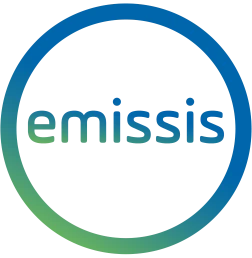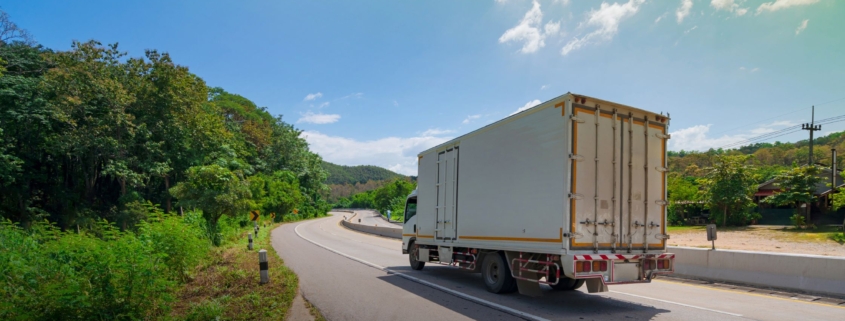The Journey of Sustainable Refrigeration in Transport
As the global food and pharmaceutical supply chains become increasingly complex, transportation refrigeration units—the cooling systems used in trucks, trailers, ships, and planes—have become a cornerstone of modern logistics. However, with rising concerns over climate change, it’s clear: how we keep goods cold during transportation needs a radical, sustainable rethink.
Why Transport Refrigeration Matters
Whether it’s fresh berries trucked from a local farm or vaccines shipped across continents, transport refrigeration ensures that perishable goods remain safe and of high quality during transit. This system, known as the mobile cold chain, is essential in preventing spoilage and waste. Yet, it’s also a significant source of greenhouse gas emissions.
The Hidden Carbon Cost
Transport refrigeration units (TRUs) are traditionally powered by diesel engines that run independently from the vehicle’s main engine. These units can emit more particulate matter and nitrogen oxides per hour than a modern truck engine. Furthermore, they often rely on high-global-warming-potential (GWP) refrigerants, such as hydrofluorocarbons (HFCs), which exacerbate their climate impact.
“TRU auxiliary engines emit at least 16 x more nitrogen oxides (NOx) and 40 x more particulate matter (PM) per kWh of energy than truck’s main engine.” Source: Cenex
Key stats:
- TRUs contribute significantly to local air pollution and carbon emissions.
- Leakage of refrigerants from mobile units is more difficult to track, often resulting in higher annual emissions compared to stationary systems.
- In some urban areas, TRUs are regulated separately due to their heavy emissions footprint.
Innovations Driving Sustainable Transport Refrigeration

To reduce the environmental footprint of cold logistics, manufacturers, operators, and regulators are exploring innovative technologies and alternative fuels.
1. Electric Transport Refrigeration Units (eTRUs)
Battery-powered TRUs eliminate the use of diesel and reduce both noise and emissions. When paired with a vehicle’s electric drivetrain, they enable fully zero-emission cold deliveries, especially in urban settings.
2. Cryogenic Cooling
Some companies are trialling liquid nitrogen (LN2) or liquid CO₂ as cooling methods. These systems offer silent operation, no direct GHG emissions, and are especially effective for short-haul urban delivery.
3. Solar-Assisted Refrigeration
Mounted solar panels on truck or trailer roofs can power auxiliary refrigeration units or charge onboard batteries, reducing fuel consumption and extending the life of electric TRUs.
4. Low-GWP Refrigerants
New refrigerants with ultra-low global warming potential (GWP), such as CO₂ (R744) or hydrocarbons, are being tested in mobile applications. These provide an eco-friendly alternative to traditional HFCs while meeting temperature control requirements.
5. Smart Monitoring and Telematics
Digital systems that monitor temperature, fuel consumption, and refrigerant levels in real-time are helping logistics firms identify inefficiencies and reduce their environmental impact.
Policy & Regulation: Pressure to Decarbonise
Governments and regulatory bodies are tightening controls around TRU emissions. For example:
- Regulations in the UK mandate the phased introduction of zero-emission heavy goods vehicles (TRUs), with specific targets for 2030 and 2035.
- The EU’s F-Gas Regulation is pushing a phase-down of HFCs, including those used in mobile refrigeration.
- Urban areas across the globe are restricting or penalising diesel-powered refrigeration in low-emission zones (LEZs).
- These regulations drive innovation and create market demand for low- and zero-emission refrigeration technologies.
Industry Response
Major logistics and grocery companies are piloting low-carbon delivery models:
- Fleet operators are investing in hybrid solutions that strike a balance between performance and sustainability.
- A global distributor of food and non-food products to restaurants, healthcare and educational facilities has added 130 electric trucks to their global fleet.
- A large British multinational grocery and general merchandise retailer has introduced HGV trailers with refrigeration units powered by solar panels, rather than traditional diesel engine technology. The retailer expects to save approximately 2,000 litres of diesel per year and over 5 tonnes of carbon per year through this initiative.
What’s Next? A Cold Chain Fit for the Climate
The transition to sustainable transport refrigeration is no longer a future ambition—it’s a present necessity. As fuel costs rise, cities demand cleaner air, and customers expect eco-conscious delivery, the pressure is mounting to cool goods without heating the planet.
Investments in technology, infrastructure, and policy alignment will be crucial to scaling up clean solutions. But the benefits—reduced emissions, longer-lasting equipment, and compliance with future regulations—make the journey more than worthwhile.
Conclusion: A Greener Road Ahead
Refrigerated transport is the backbone of modern supply chains. But to align with global climate goals, we must rethink how we cool our cargo. Whether it’s electric units, natural refrigerants, or smarter logistics, the path forward is clear: a carbon-conscious cold chain, from truck to table.
Footnote:
Emissis is a leading provider of energy, carbon, and cost reduction solutions based in the UK, Ireland, and Switzerland. We are an independent supplier of power and cooling solutions for critical, industrial, and commercial operations in the food and pharmaceutical sectors.
Lowering your emissions through innovation in transport and energy infrastructure
Further information on Refrigerated transport and equipment can be found netregs.org.uk




